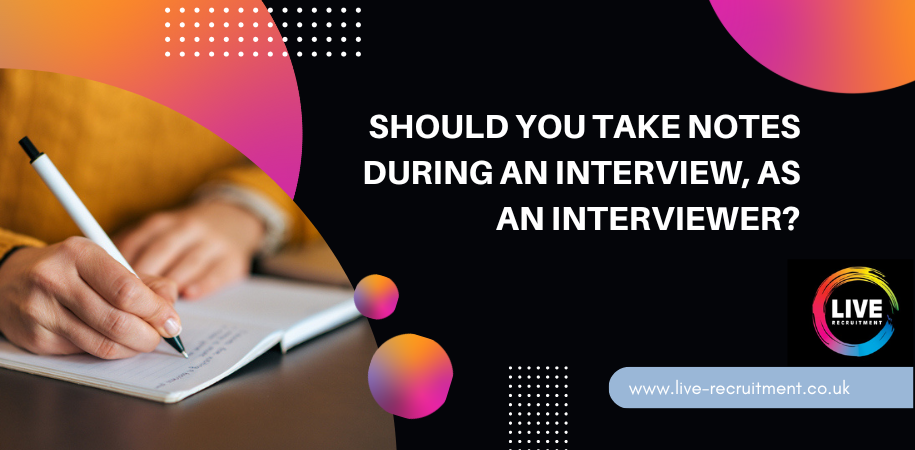There is no real consensus on whether or not interviewers should take notes during interviews. Some say that it is helpful in order to keep track of what was said and asked, while others claim that it can be distracting and make the candidate feel uncomfortable.
Ultimately, it is up to the interviewer to decide whether or not they want to take notes. It will largely depend on your interview style and how well you retain information. In this guide, we will explore the pros and cons of taking notes in an interview so you can decide which one is right for you.
The Pros of Taking Notes
There are a few key benefits to taking notes during an interview. Firstly, it can help you to keep track of what was said. This is especially useful if you are interviewing multiple candidates and need to compare their answers at a later stage. Asking all candidates the same questions will allow you to make direct comparisons.
Secondly, it can be helpful in jogging your memory after the interview has finished. This can be useful if you want to follow up on something that was said or ask a clarifying question. If there are a few people on the interview panel, it can be helpful to be able to compare notes.
Finally, taking notes can show the candidate that you are interested in what they have to say and are taking the time to listen to them carefully. It can also put the candidate at ease, as they won't have the pressure of you looking at them the whole time.
The Cons of Taking Notes
There are also some drawbacks to taking notes during an interview. Firstly, some candidates may feel uncomfortable with an interviewer taking notes and this could affect their performance. Some people thrive on interaction and eye contact and may feel uncomfortable if they don’t get this.
Secondly, it can be distracting for both the interviewer and the candidate if the interviewer is constantly looking down at their notes rather than making eye contact. If you do decide to take notes, it's important to look up occasionally. You might miss some important non-verbal cues if you are never looking at the candidate.
Finally, taking notes can sometimes make the interviewer feel more like they are in a meeting rather than having a conversation, which could reduce the rapport between them and the candidate. If you find that taking notes stifles the conversational element of the interview, then it might not be the right choice for you.
Should I take notes in an interview?
Ultimately, whether or not to take notes during an interview is a decision that each interviewer must make for themselves. There are pros and cons to both taking notes and not taking notes. Consider your own style and needs before making a decision.
You should take notes in an interview if:
You feel like you need them in order to remember what was said
You want to be able to compare answers between candidates
You think they will help you to ask follow-up questions
You think it will help put the candidate at ease
You'd like to be able to get a second opinion later
You'd lie to compare notes with another interviewer
You should not take notes in an interview if:
The candidate seems uncomfortable with it
It is making you too distracted to focus on the conversation
You think it is making the interview feel more like a meeting than a conversation
You struggle to be involved with the conversation if you are writing at the same time
You are confident that you’ll be able to remember everything
In conclusion, there is no right or wrong answer when it comes to whether or not interviewers should take notes. If you decide that taking notes is right for you, be sure to do so in a way that is respectful and doesn't make the candidate feel uncomfortable. If you decide not to take notes, that's okay too! Just be sure that you are able to remember everything that was said so that you can make an informed decision later on.


